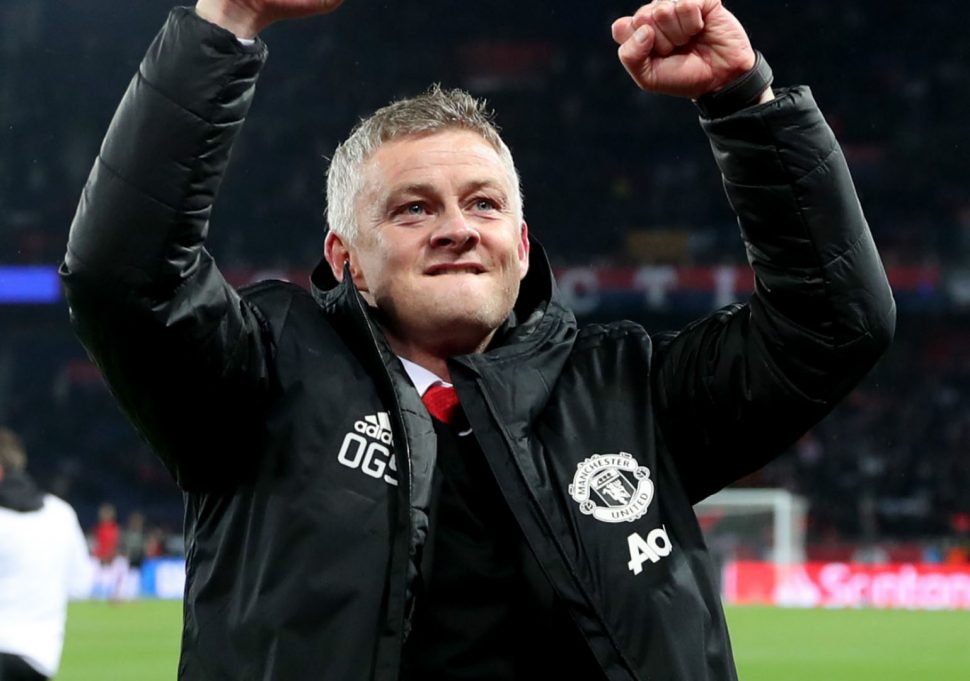MANCHESTER, England, (Reuters) – At a time when many are wondering what happened to Britain’s political and diplomatic skills, Ole Gunnar Solskjaer showed a full understanding of the “art of the possible”, sealing a deal yesterday to become Manchester United’s new permanent manager.
Solskjaer was a surprise choice as caretaker manager, replacing the sacked Jose Mourinho in December, and at the time few imagined he would end up the man in charge for the long-term.
The club made it clear that they were going to take their time to find the right man for the task of restoring the club to what they feel is their rightful place at the pinnacle of English football.
Would it be Tottenham boss Mauricio Pochettino? Would it be then free-agent Zinedine Zidane now with Real Madrid? Given their status and resources, United remained an attractive proposition for any ambitious manager.
But the Norwegian, an opportunist striker in the club’s glory years under Alex Ferguson, took full advantage of the chance that fell his way.
He combined impressive results with a charm offensive off the field which would be the envy of any politician to make himself the inevitable choice.
He has been relentlessly “on message” from his very first press conference, constantly referencing the club’s culture, the ‘United way’ and the Ferguson legacy.
Of course, crucially, he backed up the ‘populist’ rhetoric with results on the field — they have won 10 of their 13 Premier League games since he was appointed and beaten Paris St Germain to reach the Champions League quarter-finals.
Solskjaer has shown he has the tactical nous and motivational abilities to make adjustments to the roles of key players, such as Paul Pogba, and being able to get the best out of several players who were under-performing under Mourinho.
But he also had the communications skills to make sure that his message never felt like spin, never felt too much like an appeal for the job.
He swerved direct comparisons with Mourinho and the headlines that would have followed from any barbed comments about his predecessor.
But he also avoided another trap — that of behaving like a temporary stop-gap, someone who lacked the authority to make major decisions.
As a player he was known as the ‘baby faced assassin’ and the infectious smile disguising a ruthless professionalism has been evident in his new role.
United had become a club where there was a strict divide between the first team set-up and the rest of the club. Even the Carrington training ground cafeteria was segregated by a glass divide designed to visibly and physically separate the elite from others.
Solskjaer had that changed and made it clear that every player, coach and employee was part of the same team, the same effort to renew the club’s fortunes.
Inviting Executive Vice Chairman Ed Woodward to sessions at Carrington was part of that genuine effort to unite the club but it was also smart politics for someone seeking to convince the key decision-maker of his suitability for the job.
The close relationship with assistant coach Mike Phelan, Ferguson’s long-term number two, showed Solskjaer was not afraid to have a more experienced voice in the dressing room and it also provided a direct link to the glory years.
Ferguson himself was brought closer to the team, visiting Carrington and celebrating in the dressing room after the remarkable win in Paris.
But here again, Solskjaer showed deft political skills, effectively dismissing suggestions that Ferguson was pulling the strings behind the scenes.
By restoring the club’s confidence and by making improvements to performance and results, Solskjaer made himself the only candidate for the job.
Now his campaign has been successful, the Norwegian knows that to make it all worthwhile, he must turn improvement into trophies.
He has the backing of his players, the club hierarchy and the supporters and will surely be given the finances to back his transfer plans.
But a ‘feel good factor’ is one thing. Winning the Premier League when Manchester City and Liverpool have assembled such impressive squads is another matter entirely.

